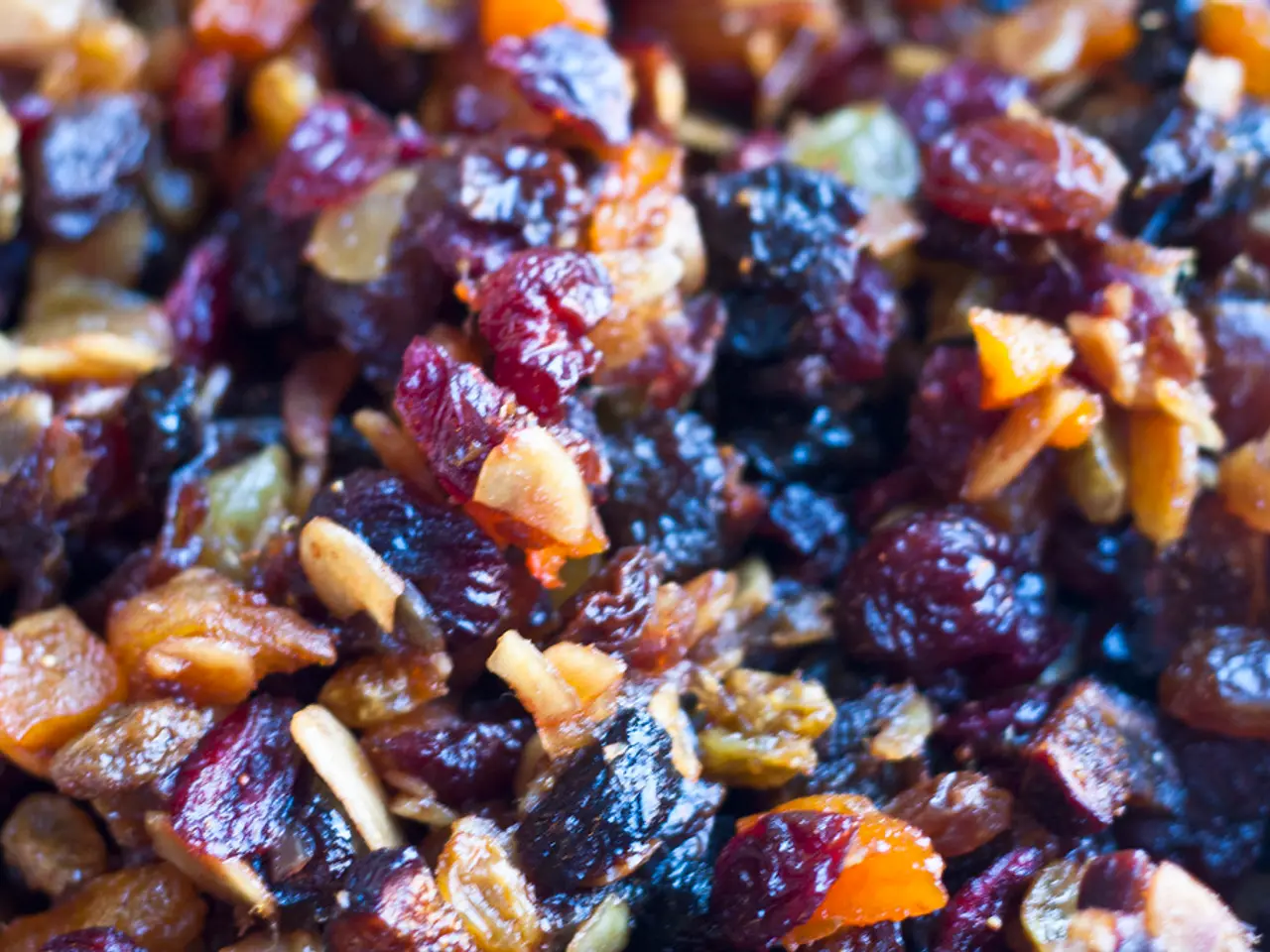Dietary guidelines for children with ADHD: Foods to promote and those to limit
A balanced diet can play a significant role in managing Attention Deficit Hyperactivity Disorder (ADHD) symptoms, according to recent research. However, it's important to note that as of 2022, there is no conclusively proven causal link between ADHD and diet.
Children and adolescents with ADHD may have lower levels of omega-3 fatty acids, essential for optimal neurotransmitter function. Foods rich in these essential fats include fatty fish, nuts, and seeds. Adequate intake of iron, zinc, and magnesium is also crucial, as deficiencies in these nutrients can intensify ADHD traits.
A diet that mimics the Mediterranean diet, rich in fruits, vegetables, whole grains, legumes, and fish, has been shown to lower the odds or severity of ADHD symptoms. Omega-3 fatty acid supplementation, particularly, has a small but positive effect in reducing aggression and antisocial behavior associated with ADHD.
On the other hand, a diet high in processed, sweet, snack, and junk foods may have links to a higher incidence of ADHD. Limiting added sugars can help manage ADHD symptoms, as sugar may temporarily increase overactivity, and it can also help improve overall health, support weight management, improve sleep, and reduce the risk of diabetes.
It's recommended to consume foods that support brain health, such as whole grains, fresh fruits and vegetables, nuts, and seeds. Ensuring adequate intake of iron, zinc, and magnesium is also crucial to address common nutrient deficiencies that can intensify ADHD traits.
Conversely, some foods and dietary habits should be avoided or limited for better ADHD symptom control. This includes limiting processed foods and sugary snacks, particularly canned fruits with added sugar, as they may exacerbate symptoms and impair nutrient balance. Reducing impulsive snacking, especially eating while distracted, can also help worsen food intake control.
In summary, a nutrient-rich, balanced diet emphasizing whole foods and omega-3 intake, combined with lifestyle adjustments like regular meals and reduced impulsive snacking, supports improved ADHD symptom management in both children and adults. The Child Mind Institute suggests a diet focused on vegetables, fruits, sources of protein, healthy fats, complex carbohydrates, sources of vitamin B, sources of zinc, iron, and magnesium, and omega-3 fatty acids may help promote overall health and potentially support brain health.
It's always advisable to work alongside a healthcare professional when discussing any dietary changes, especially when considering supplements or herbal remedies and ADHD medications. For adults with ADHD, dietary recommendations are similar to children with the condition, and they may want to limit caffeine consumption if it causes side effects such as anxiety, insomnia, or irritability. The risk of caffeine side effects may increase with the use of stimulant medications.





